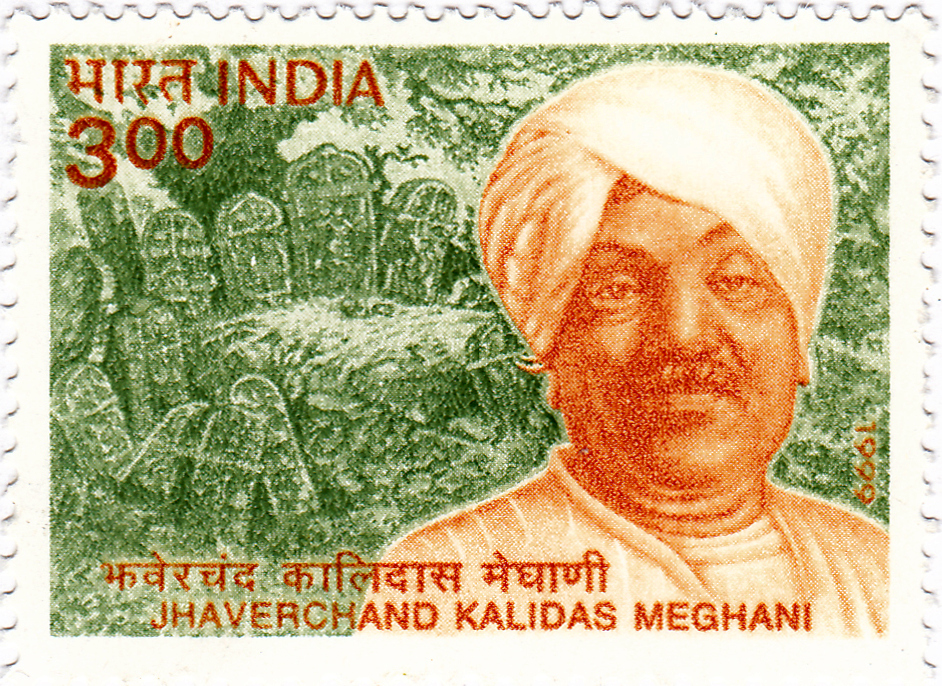Meghani and The Last Goblet
Li Ao’s famous work from his youth, Thirteen Years and Thirteen Months, once inspired countless young students. In the text, he mentions a translation of two verses by an Indian Gujarati poet:
You have already swallowed much bitter medicine.
Now, courageously drink this cup of poison!
These lines are powerful and heroic, exuding a spirit of grandeur, vividly portraying the image of the “long-robed eccentric” at National Taiwan University who maintained an indomitable spirit despite difficulties. Come on, enduring hardship is nothing to fear, so why fear a cup of poison? The young Li Ao feared becoming complacent or cowardly far more than he feared death. This simultaneously brings to mind Confucius and Socrates. Confucius said, “The noble man does not seek to live at the cost of harming righteousness but is willing to give up life to achieve righteousness.” And the poison, after Socrates’ death, became a symbol of sacrifice in the pursuit of truth.
Li Ao did not specify which poet or which poem this was, nor the circumstances under which it was written. I have always been curious, and recently I seem to have found a clue.
Gujarat is located in the westernmost part of India, near Pakistan, and is the homeland of Mahatma Gandhi. The poem that Li Ao rephrased may come from Chhello Katoro (The Last Goblet) by Gujarati poet Jhaverchand Meghani (1897-1947). Meghani was a prominent Gujarati poet who collected and published the folk tales of his homeland. He was also a passionate freedom fighter and journalist, dedicated his life to the Indian independence movement. Gandhi called him the “national poet.” His works, exceeding a hundred volumes, include novels, short stories, literary criticism essays, and poetry, with his patriotic poems being particularly famous and enduring.

In 1930, Meghani was sentenced to two years in prison for writing Sindhudo, a book that compiled songs encouraging Indian youth to join the struggle for independence from British rule. That same year, Gandhi led the Salt March, a 400-kilometer march from Delhi to Ahmedabad, in protest of the colonial government’s salt monopoly. Thousands of people walked to the seaside to collect salt themselves, resisting the government tax.
Gandhi used non-violence and civil disobedience to fight against the British colonial government, fasting more than ten times in his life. Fasting has long been prevalent in India, with ascetics often living in squalor, enduring hardships that ordinary people would find unbearable. Gandhi’s fasting was both a way to train his own willpower and a method of shifting the battleground against the colonial government to his own body. While the body decays, the spirit is purified. He internalized the struggle against authority, battling it with every pore and organ of his body. What truly satisfied him was something beyond mere physical sustenance.
In 1931, as Gandhi set off for London to attend the Round Table Conference for negotiations with the British government, Meghani wrote Chhello Katoro to send him off.
Here is the English translation by Shirin Kudchedkar:
Drink up this last goblet of poison, father!
Consumer of the ocean! Do not spill any as a libation!
In unstinting trustfulness your life has passed:
Thrown among villains and deceivers;
Resting your head serenely in the enemy's lap:
On this pillow must you finally rest your head, father!
They may slash your throat, but the enemy's mind must be measured.
When gods and demons churn the ocean 'fresh in this new age,
How those who desire the gems can know what to expect?
Except you, Shiva, who will swallow poison bowlful?
Go father, let the poison penetrate even into your heart!
Go father, most benign and most terrible, most tender and most fierce!
The world will ask: has the holy man lost his holiness?
Have the seas gone dry? Have the deep waters run out?
Do the sky, sun, moon, lack oil to keep them alight?
Don't hold back father, witnessing our pain!
We have borne much, we shall bear more; don't shudder for us!
Whips, seizures, fines, blows,
Prisons--the living cemeteries,
And sprinklings of bullets,
We have digested all of them, our bodies are attuned to this diet!
Our flower-like hearts, father, you have cast in iron!
What does it matter whether you bring something or not?
We will shower kisses on you even if you return empty-handed,
We will surround you with arms dripping with love!
Go out into the arena of the world, father!
Go and deliver the message of compassion.
The world will mock; this spiritual leader did not turn up,
He backed out in spite of his bragging, knowing his own hollowness
We have seen through him, this lover of humanity; he did not care
for the scalded world.
Ailing humanity grows impatient, father!
It longs for your healing touch.
Go father, tame the maddened bull
Go, sprinkle water-drops on the world bent on slaughter,
Go, build a bridge over the seven seas.
Lighting the path through the pitch-dark forest,
Stroking the mane of the fierce lion,
Go ahead, it is God who is your guide,
Father, drink up this last goblet of poison.
Here is my translation of the English version into Chinese:
喝光这最后一杯毒药吧,父亲!
大洋中的掠食者啊!不要洒出一滴献祭!
在无限的信任中,你的生命已经逝去:
被扔在恶棍和骗子中间;
把头安详地靠在敌人的腿上:
父亲,您终于要在枕头上休息了!
他们可能会割断你的喉咙,但肯定会衡量敌人的思想。
当众神和恶魔在这个新时代搅动海洋生命时,
那些觊觎宝石的人,岂能知道会发生什么?
除了你,湿婆,谁会吞下一大碗毒药?
去吧,父亲,让毒药渗入你的心!
去吧,父亲,最善良最可怕,最温柔最凶猛!
世人会问:圣人是否失去了圣洁?
大洋干涸了吗?深渊消失了吗?
天空和日月失去能量维持光亮了吗?
父亲,不要退缩!见证我们的痛苦!
我们忍受了太多,我们将承受更多痛苦;不要为我们寒颤!
鞭打、扣押、罚款、殴打,
监狱——流动的墓地,
和溅射的子弹,
我们已经消化了所有这些,我们的身体适应了这种饮食!
我们的心如花瓣,父亲啊,你的心已经铸成铁了!
是否有收获有什么关系?
即使你空手而归,我们也会亲吻你,
我们将用充满爱的双臂拥抱您!
走进世界的舞台,父亲!
去传递慈悲的信息。
世界将嘲笑我们;这位精神领袖不会出现,
他不接受对他的赞美,知道自己的空虚
我们已经明白他,热爱着人类;他不介意
伤痕累累的世界。
生病的人类变得不耐烦了,父亲!
它渴望你的治愈之触。
去吧,父亲,驯服发疯的公牛
去吧,将水珠洒在杀戮的世界上,
去吧,在七海之上建一座桥。
照亮穿过漆黑森林的小路,
抚摸凶猛狮子的鬃毛,
去吧,神是你的向导,
父亲,把这最后一杯毒药喝光。